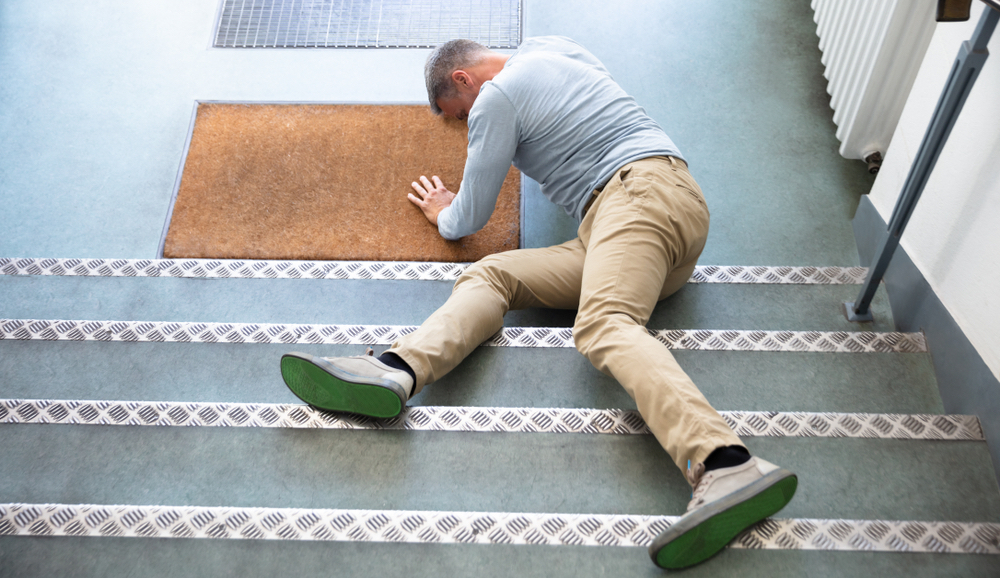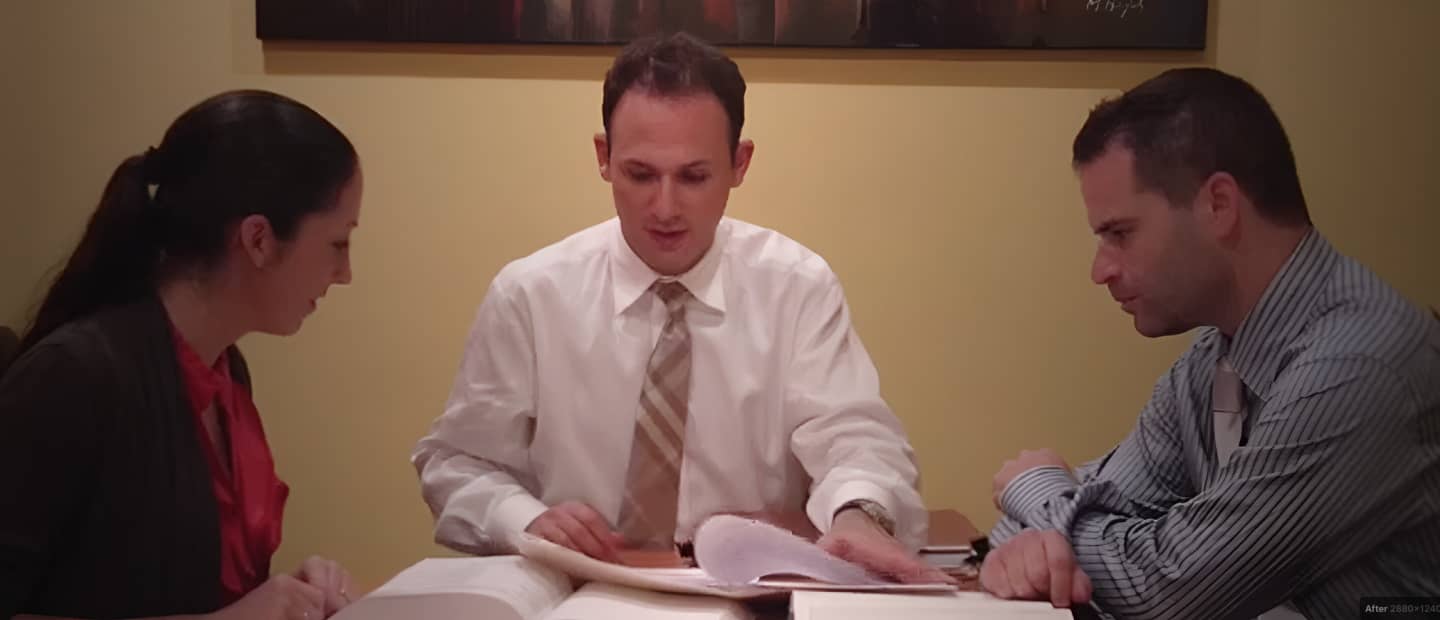Fort Lauderdale Slip and Fall Accident Lawyer
Fort Lauderdale Slip and Fall Accident Lawyer

Property owners have a duty to keep their premises in good condition to protect the safety of guests and/or tenants. People who own any type of property, including shop owners, landlords, and even everyday homeowners can be held financially responsible for the resulting injuries of visitors to their premises when they fail to keep them safe by subjecting them to dangerous conditions, neglect to make necessary repairs, or in some cases to provide adequate security against crime in the area—a type of liability known in legal circles as “negligent security”. If you were hurt because of a property owner’s negligence, an experienced Fort Lauderdale slip and fall accident lawyer from our firm is available to advocate for your right to recover fair compensation for your injuries.
What is premises liability?
Property owners, managers, and occupants have an obligation to provide reasonably safe premises for those who visit as guests, customers, clients, or patrons. Where a dangerous property condition exists that results in the injuries of another, the property owner may be held liable for damages connected with such injuries.
This is called premises liability and applies to both public and private properties, including, but not limited to, the following:
- Office buildings
- Retail outlets
- Department stores
- Movies theaters
- Entertainment venues
- Apartment buildings
- Educational institutions
- Educational institutions
- Parking structures
Where a dangerous property condition exists, the owner or manager should remedy it in a timely manner or alert visitors and others to its potential risks until it is remedied.
Get Free Advice From An Experienced Personal Injury Lawyer.
Negligence in Premises Liability Cases
Negligence in such cases can involve dog bites as well as other property conditions, such as inadequate or absent lighting in halls, stairwells, or pathways, broken stairs or flooring, wet floors, negligent security, and more. Such cases can be complicated, which is why it is important to seek the knowledgeable assistance of a Fort Lauderdale slip and fall accident lawyer who is well-versed in the laws and precedents concerning such legal matters. In any claim involving an insurance company, it is always best to be represented by a legal professional as statistically it has been shown to result in better settlements.
over
10+
of Millions Recovered

Providing the Proper Legal Assistance in Fort Lauderdale
Those who slip or trip and fall, sustaining serious injuries due to such a safety hazard, should discuss their situation with a knowledgeable Fort Lauderdale personal injury attorney. At Ace Your Case, P.A., we can advise you on your legal options and take legal action where appropriate on your behalf in such cases. Our firm has helped countless clients throughout Florida in determining the legal validity of their cases and pursuing compensation for their injuries through an injury claim or lawsuit.
Contact a Fort Lauderdale slip & fall attorney today to schedule a free consultation! We can also be reached at (954) 807-4665 .
Plantation Personal Injury FAQs
When Is It the Right Time to Call a Personal Injury Lawyer?
The right time to call is as soon as possible after your accident. There are many reasons why you need to begin the legal process as quickly as you can. The legal process may even begin without you, with many calls from the insurance company trying to either rush you or to pressure you to give a statement. They may try to catch you unaware and trick you into compromising your legal rights. Hiring an attorney could prevent this from happening.
Equally important, as time passes from the time of your accident, the evidence that could help your claim can become harder to find. People might quickly clear the scene of the accident, and you may lose the ability to contact witnesses. The witnesses that you have may begin to lose their recollection of what they saw. When you hire a personal injury lawyer, they will get to work immediately to gather the evidence before it is lost.
Calling a lawyer to get started on your case is a crucial step in the legal process. Knowing that you have someone on the job with the experience and tenacity to fight for you can give you at least some peace of mind during an undoubtedly difficult time.
How Do Insurance Settlement Negotiations Work?
An insurance claim is just like any other negotiation. You have a number in mind for what you think that you should receive for your injuries, and the insurance company has a much lower number in mind for what it wants to pay. Your insurance claim begins when your Plantation personal injury attorney files a demand letter with the insurance company. This is when the adjuster goes to work to try to save money for their bosses.
The insurance adjuster may outright deny your claim or question liability. They may come back with a settlement offer. When the number seems low, and it will, know that this is just their opening offer. Your Plantation injury attorney will likely reject the offer and respond with your own demand.
Eventually, you will lower your number, and the insurance company will raise theirs, and you could meet somewhere in the middle. This is a time-honored dance that personal injury lawyers have been doing with insurance companies since the advent of courtrooms. Even when you seem very far apart from the insurance company, most cases eventually will settle.
What Happens After I File a Personal Injury Lawsuit?
Filing a personal injury lawsuit is an early part of the claim process. Most cases will never go far enough to see the inside of a courtroom. Statistically speaking, a vast majority of personal injury cases are settled out of court. However, if your case does make it to court, you should expect going into it that the trial process may take one to two years to complete. The legal system is far from rushed, as courts and judges have busy schedules and full dockets.
In the short term, you can expect motions and attempts to obtain evidence. Many people associate a lawsuit with a trial, but that only happens after many months of the nuts and bolts of the legal system. The phase of your case that will take the longest time is discovery. This is when the two sides obtain evidence that the other has in their possession. At this point, you may even need to sit for a deposition.
Filing a lawsuit will not cut off settlement negotiations. As was previously mentioned, most cases will settle without a trial. If anything, litigation may give each side more incentive to settle. The two parties usually continue negotiating right up until the point when the jury is seated.
What Evidence Can Prove My Injury Claim?
Negligence is the basis of every personal injury claim. When you file a lawsuit in court, you have the burden of proof. It will be up to you to show that what you say is more likely than not to have happened. You need to back your claim up with evidence.
Your Plantation personal injury lawyer will work to gather things that can backup your side of the story, including:
— Witness statements from people who say your injury or accident
— Pictures of the scene of your accident
— Security camera footage
— Expert witness testimony that could reconstruct the accident
— Maintenance logs of the area or vehicle involved
— Medical records that can help prove damages
These are things that can be difficult to get on your own and piece together to tell the story of what happened. Injury lawyers in Plantation, Florida, know how to both get the evidence and use it to prove that someone else was responsible for your accident.
What if I Cannot Work Due to My Injuries?
Your personal injury damages include both economic and non-economic compensation. Economic compensation aims to pay you back for the actual money that you lost. This includes bills that you paid and earnings you lost. This specifically pays you back for lost wages from your job when you are unable to work. Since you would have worked, this is money out of your pocket.
Lost wages in a personal injury settlement are much broader than you think. Of course, this includes the time that you have already missed from work. It also encompasses time that you will miss from work in the future. You do not need to outright miss work to receive compensation for this. For example, if you were qualified for a promotion but cannot get it now because your injury limits you in the type of work that you can do, you can get compensation for the reduction in your earning capacity.
Lost wages are often a very contested part of your personal injury claim because you can bet that the insurance company will see things differently to try to lower its bill. They may dispute what your possible earnings are or use a lower rate of inflation to calculate what they may be in the future.


Hear It From Our Clients
“Ace Your Case Excellent Attorneys”
Personal injury attorneys Craig Posner and Eric Feingold are both excellent attorneys, but more importantly, they are excellent people. I have seen first hand their hard work and dedication to clients. I would not hesitate to recommend their services to others.
“Great Guys Who Take Their Job Seriously”
Great guys who take their job seriously. They took care of me when I had my accident and made sure I was walked through 100% of the way.
“Pleasure And Blessing To Have Ace Your Case Represent My Family”
It has been a pleasure and blessing to have Ace Your Case represent my family. They always kept me updated on our case. The staff was excellent they always got back to me on questions I had. I highly recommend them and will continue to use them if needed.
“Not Only Very Efficient But Caring As Well”
These lawyers are not only very efficient, but caring as well. I would not hesitate to refer them to anyone.
“I Highly Recommend Them!”
Big thanks to Eric and Doug for doing a great job with the handling of my auto accident. I highly recommend them!



